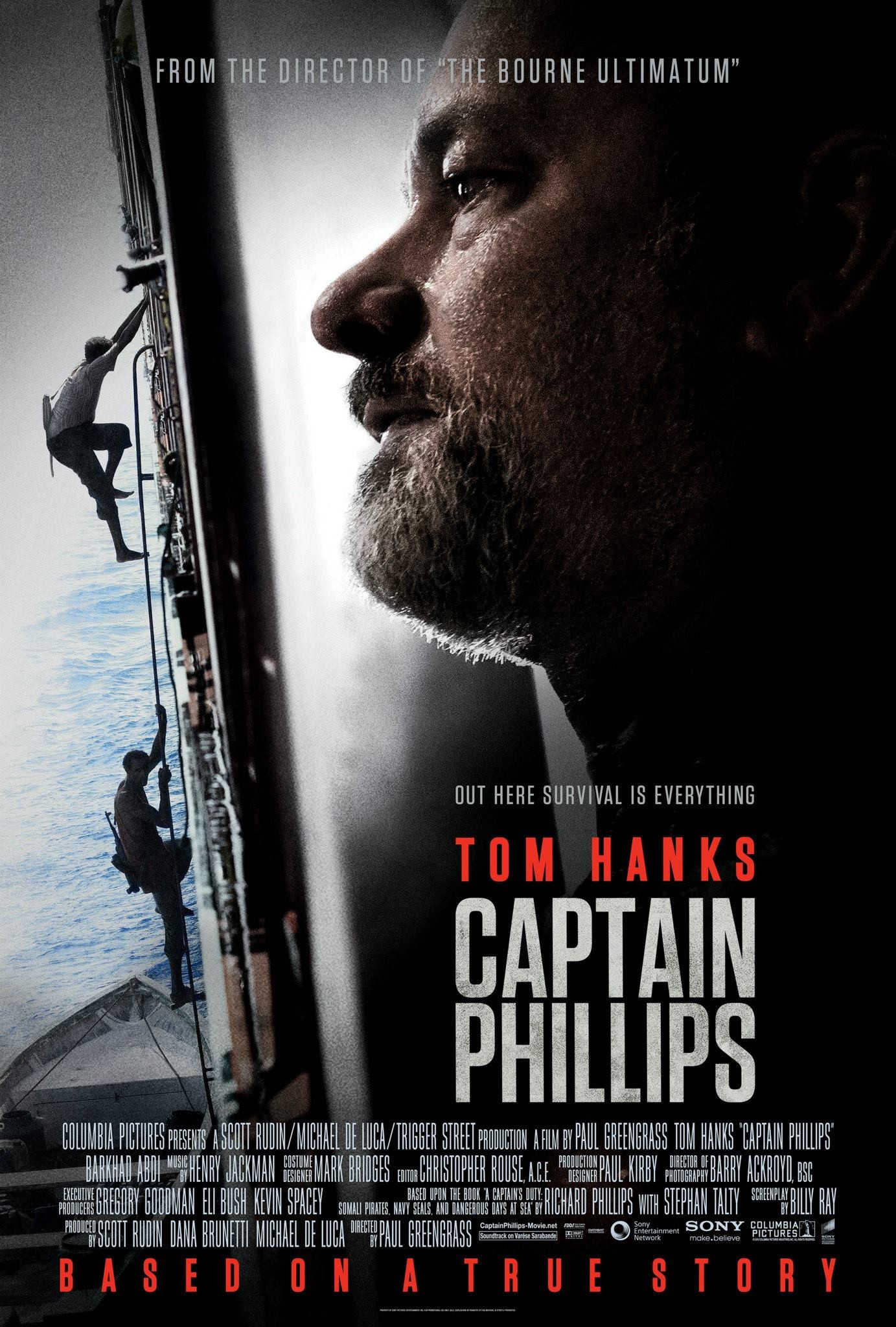
Nordling here.
The films of Paul Greengrass are overwhelming with emotional truth and empathy - yes, even his BOURNE movies - and yet those crucial moments of catharsis in his works always feel earned. They always feel organic, and the audience often feels swept along with the story, swept along with something much larger than themselves. Never mind the Greengrass style of cinematography, never mind the subject matter. That is Paul Greengrass's true talent as a filmmaker - he's Johnny-on-the-spot as a filmmaker, and he takes the audience along with him. Whether it's in a film like UNITED 93, where we as the audience feel a part of the story (as much a part as can be done in a movie, anyway), or in his latest film, CAPTAIN PHILLIPS, Greengrass doesn't just want to document these events. He wants us to share in their power. He wants us to feel them.
Because Greengrass wants us to feel the immensity of these events, he's also not interested in making a simple polemic, with one point-of-view. Greengrass makes movies about the intersections that cause such tragic events like 9/11, or the Somali pirate hijacking of the Maersk Alabama - not only how those pieces move on the board of history, but how those pieces are manipulated and positioned by larger forces. Thus, not only do we get a bit of insight into Captain Richard Phillips (Tom Hanks), his life, and what makes him tick, but we also examine the life of Muse (Barkhad Abdi), the head hijacker of the freighter. We examine his reasons and purpose - Muse has very little opportunity in Somalia. He fears for his life constantly, forced by the local warlord to bring back a ship, any ship. He wants to make his mark, but the only way he can is through piracy - Somalia doesn't offer much more.
And so, we watch as these two men inexorably move into a collision course. Muse and his crew of three other Somalis have no choice but to attempt to hijack the Maersk Alabama, and Phillips and his crew must attempt to stop them. History dictates what happened, but as with UNITED 93, Greengrass is more interested in the hows and whys than the whats, and as events unfold off the coast of Somalia, these two men, who would have never crossed paths otherwise in life, are brought together in a tapestry so much larger than either of them. They may be swept away by the tides of history, but Greengrass never lets the scale get away from them.
It also helps that the script by Billy Ray (BREACH, THE HUNGER GAMES) remains focused on these men - while larger events unfold around them, including the deployment of Navy SEALs to deal with the situation, Phillips and Muse play a verbal game of cat-and-mouse, with Phillips trying to secure safety for his crew and for himself, while Muse wonders like a child at the possibilities that any ransom might bring. In a way, Muse is like all those millions of people who came to America with dust in their pockets and dreams of success, but because of where he was born, all he has is piracy. That's the only option open to him, and the tragedy of his situation is that it is inevitable. Barkhad Abdi plays Muse with a mixture of naïveté, fear, and unpredictable danger, and he plays them successfully opposite one of the most beloved actors on the planet.
Abdi holds his own, too, which is quite something, because Tom Hanks gives one of the best performances in his already esteemed career in CAPTAIN PHILLIPS. He doesn't play him with stoic grace, but with increasing desperation and fear, hoping that events do not escalate any more. When they do, he uses every option available to him, and sometimes makes bad choices, as all people would under those extreme circumstances. Hanks's final moments in CAPTAIN PHILLIPS are absolutely devastating, as the force of what has happened to him overwhelms him. It's about as brave and selfless a performance as I've seen this year.
The last half-hour of CAPTAIN PHILLIPS is intense, powerful cinema. Some may complain of Paul Greengrass' signature "shakycam" style, but don't be fooled - Greengrass is a master of geography and he positions everyone in their places as adroitly as any master filmmaker can. Most bad directors use that style of camerawork to simulate energy instead of actually showcasing it - Greengrass knows exactly what he's doing, and the result is unflinching, nail-biting tension that doesn't give an inch. He's probably the only director in the world that gets away with his style of filmmaking.
I remember gripping my seat, even though I knew what was going to happen. It's because of the emotion, the empathy that Greengrass injects into each moment, that caused me to be so invested. When the emotion comes - and boy, it comes in a tidal wave - I cried tears, not only for the survivors, but for the lost, for the situation, for the way the world is cruel, and for the unstoppable nature of history. The tragedy, Paul Greengrass suggests, is not that these things happened. The tragedy is that we saw them coming, and were helpless anyway. This is one of this year's best films.
Nordling, out.
